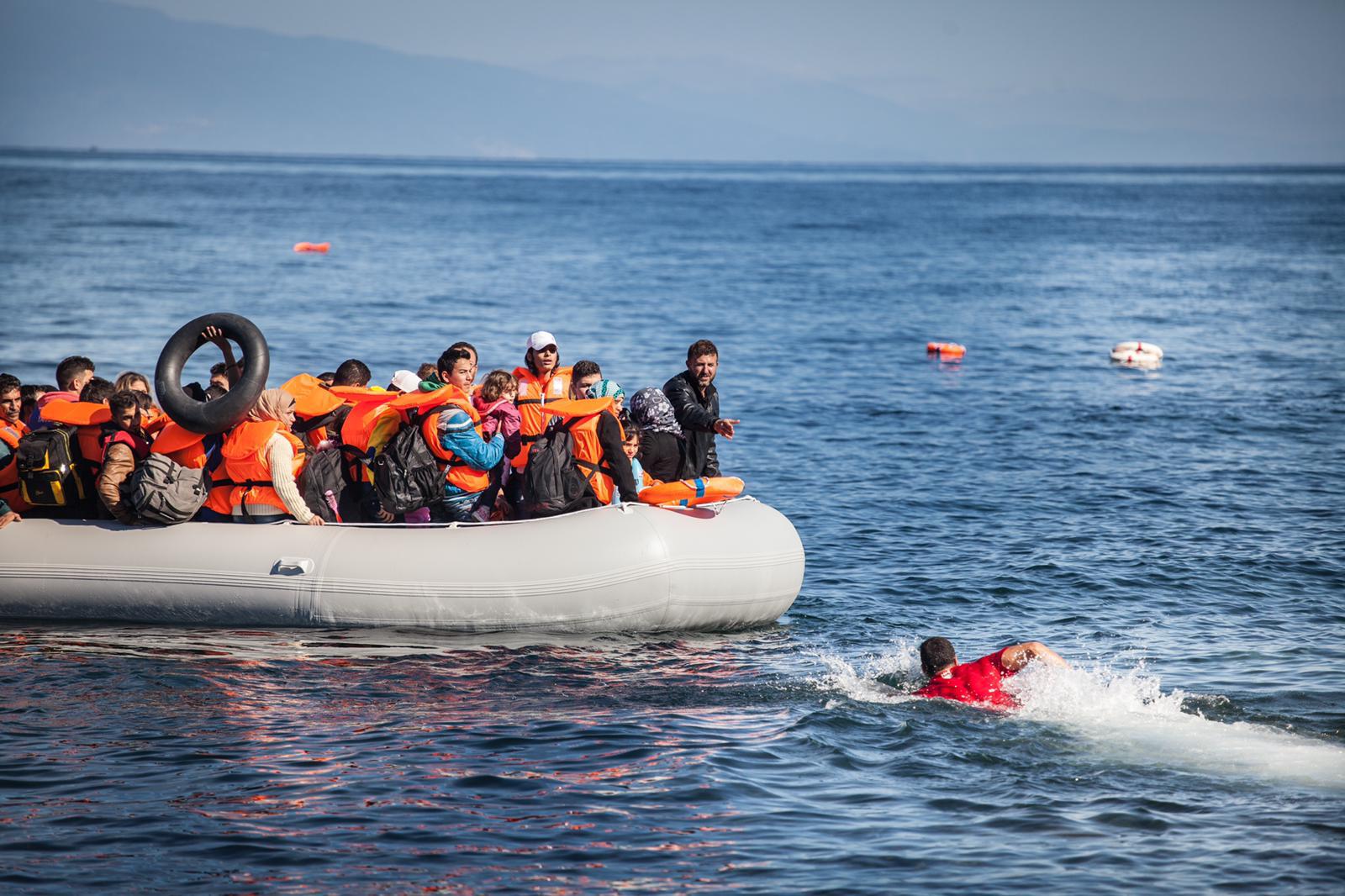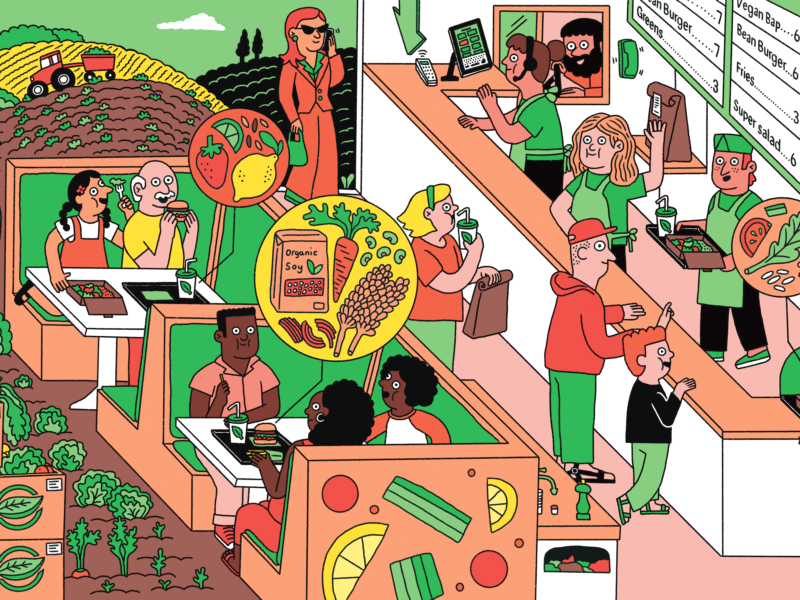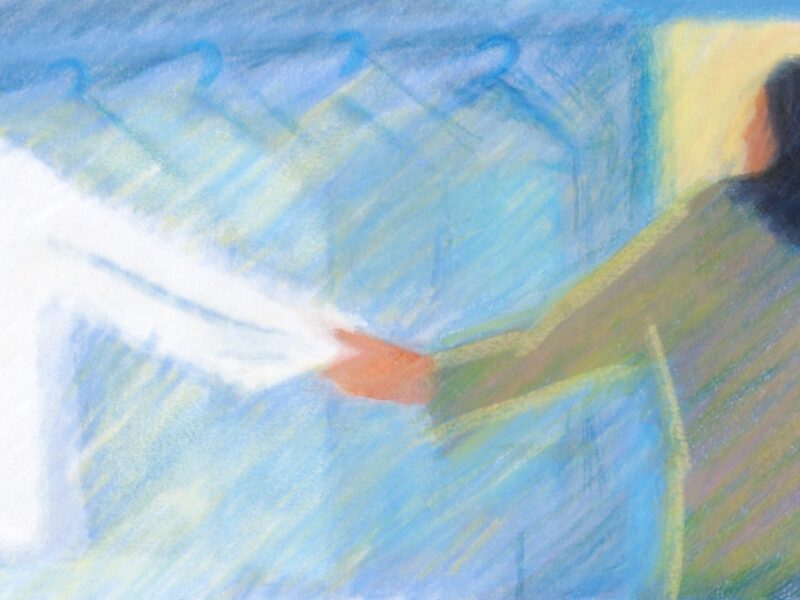More people are currently fleeing war and extreme poverty than at any time in history, but those who try to help often face criminal charges
The United Nations High Commissioner for Refugees (UNHCR) reports that 839 people have already died in 2019 trying to cross the Mediterranean. In 2018, the number of dead or missing was 2,277. At its height in 2016, 5,096 people died at sea. These are desperate people fleeing war and extreme poverty. But no state will take responsibility for them.
Yet even as international accountability for human rights violations becomes a hollow joke, there are people who have taken it up themselves to dedicate their lives to rescuing and helping refugees, no matter what the personal cost. These are idealistic people who also have a firm grasp on reality: they know they cannot save the world, but they believe that capitulating to helplessness is not an option.
Salam Aldeen is the founder of Team Humanity, a Danish nonprofit dedicated to helping refugees who made the perilous journey across the Mediterranean to the Greek island of Lesbos. A Dane of Iraqi-Moldovan descent, Salam flew to Lesbos in 2015 to begin sea rescue operations two days after seeing the now-iconic image of Alan Kurdi, the three year old Syrian boy whose body washed up on a beach in Turkey. Alan and his family had been trying to reach Europe in an inflatable raft.
In January 2016, Greek authorities arrested Salam and four other humanitarian volunteers after they responded to a distress call from a group of refugees on a sinking rubber raft. The arresting officers accused them of crossing into Turkish waters with the intent to traffic refugees into Greece. Salam spent 48 hours in jail, and then two more years on trial, with prosecutors seeking a life sentence. The five men were acquitted of all charges in May 2018 and Salam immediately went back to work, this time building a women and children’s center adjacent to Moria, a notorious refugee camp on Lesbos that is known for violence and horrifying conditions. Moria was built for 3,000 people but shelters more than three times that many, mainly Syrian refugees and Afghan asylum seekers.
The Team Humanity center is a reprieve for the 1,500 women and children who use it daily. “All women and children are welcome,” Salam said, noting that 11 is the cutoff age for boys. There’s a playground, and space for people to gather to dance, listen to music and watch movies. The center is funded entirely through private donations from all over the world. The money goes toward providing camp residents with necessities like food, diapers, winter clothes, and underwear. Salam gets wistful when he talks about building a school. “I don’t have funds for chairs and tables.”
On August 11th, the night of the Muslim festival of Eid-al-Adha, a group of men attacked the women’s center. “It was Eid, Ramadan had finished and everyone was happy. People went out. But then some troublemakers started making problems,” Salam says.
Salam described a scuffle between camp residents, which included a drunk man, volunteer security people restraining him, and a woman who screamed and pretended to faint. “It was all over quickly, Salam says. “She fainted for attention, it was a joke, and the drunk guy apologized.” But then, he says, a rumor started in the camp that someone had hit the woman. Salam estimated that between 100 to 200 men from Moria showed up, angry. There were only 26 volunteers working at the time, with additional women and children inside. When some men began to climb over the fence, Salam chased after them with sparklers and they ran off.
The local Greek police took an hour to arrive. “They don’t want to help. They don’t want us to be there. They want us to suffer so we go home,” Salam says.
On August 14th, the Greek police returned, this time to rearrest Salam. “The police said the fireworks that I used to protect us were illegal,” Salam says. “They held me for over two hours, and at the same time brought someone in to report me for hitting him. I don’t know what they promised him for that, but it’s so corrupt.”
He doesn’t expect the harassment will stop. Salam says he received a letter from the United Nations last week, also sent to the Greek government, which condemned the legal actions taken against Salam and the criminalization of humanitarian aid. Still, his biggest hope is for celebrity intervention — a “We are the World” moment to capture international attention.
Salam Aldeen is not the only humanitarian volunteer facing legal charges for aiding refugees. Pia Kemp, the German captain of a ship that was impounded for rescuing migrants at sea, recently announced she was turning down a medal from the city of Paris. Addressing the mayor of Paris, Kemp wrote in a Facebook post, “Madame Hidalgo, you want to award me a medal for my solidarian action in the Mediterranean Sea, because our crews ‘work to rescue migrants from difficult conditions on a daily basis’…while you raid protests and criminalize people that are standing up for rights of migrants and asylum seekers. You want to give me a medal for actions that you fight in your own ramparts.” Kemp reportedly faces 20 years in prison in Italy on charges of aiding in human trafficking.
There is no humanitarian exception to the European Union Directive that criminalizes aiding illegal migration. The burden of hosting refugees and asylum-seekers falls heavily on Mediterranean countries due to the Dublin Regulation, an EU law which states that people seeking asylum are the responsibility of the first European country they land in. At the same time, whistleblowers in the Greek government have accused the state of misappropriating EU funds meant for refugees, and awarding inflated contracts to local businesses. As Salam put it, “Finance crisis, bullshit, I see new cars. They didn’t have them in 2015, now they do.”
In Denmark, Salam’s home country, the government’s laws and rhetoric are increasingly anti-immigrant. In 2016, Denmark passed the controversial “jewelry law,” which allows the government to confiscate valuables from refugees to pay for their care. The law has not been enforced, but the symbolism remains. “I’m ashamed that Denmark doesn’t take refugees. That’s why I’m here helping people. I’m trying to show that it’s not every Danish person that feels this way,” says Salam.
In 2018, Arizonan geography teacher Scott Warren was charged by Border Patrol with three felonies for aiding a pair of Central American migrants. His trial resulted in a hung jury. Federal prosecutors have refused to drop the charges since the mistrial, and plan to retry Warren on two felony harboring charges in November.
Warren’s case, like his European counterparts, failed in court because prosecutors could not prove intent to commit a crime. Still, Warren’s arrest is part of an escalating attack on humanitarian volunteers, who for years have put out jugs of water for dehydrated migrants traversing the desert along the United States’ southern border.
Migration flows will increase as the planet warms and regions become uninhabitable. The post-World War II liberal order, built upon freedom of movement and freedom from persecution has failed. The Refugee Convention was not written to account for massive influxes of people fleeing widespread violence and climate change. Permanent impermanence has been normalized – the most obvious example being Palestinian refugees, who were placed under their own UN agency in order to sidestep UNHCR.
Ironically, during World War II, Syria played host to thousands of European refugees. Now that the tables have turned, Europeans are treating the refugee crisis like a game of hot potato, selling out basic principles in order to keep Muslims out. What began with a 2016 deal to return refugees to Turkey was followed by an even worse deal with Libya.
In America, our government has behaved no better. Just this week, the Trump administration announced a new policy that would allow for indefinite detention of migrant families and children. Meanwhile, Haitians who have lived for decades on Temporary Protected Status (TPS) now face deportation since the Trump regime denied them renewal.
The crackdowns are real, and until new institutions are constructed to provide accountability, legal or otherwise, we’ll return to the same solutions humanity has used throughout history.
There’s a Jewish teaching, naaseh v’nishma, which means “we will do and we will hear.” If somebody shows up to your doorstep, feed them, give them a bed, and ask questions in the morning.
Tyrants have always used vulnerable populations as pawns in their games with one another. But there have always been people willing to sacrifice their bodies and voices for others.
Salam and his family arrived in Denmark in 1992 after fleeing civil war in Moldova, but he insists that his past is irrelevant to what he’s doing now. “Everyone can do what I do. No money in the world can give you the feeling you get when you’re saving a human from drowning. I can’t explain it to you because it’s something insane. Giving a baby back to their mother after pulling them from the water, that is something I’ll never forget. People if they want to do something — know one thing — don’t think that you will get something back, but you’ll get peace with yourself. That feeling when you help somebody, this is your reward. You’ll understand, I did something good. Because one day, maybe it’s you who is going to run.”



